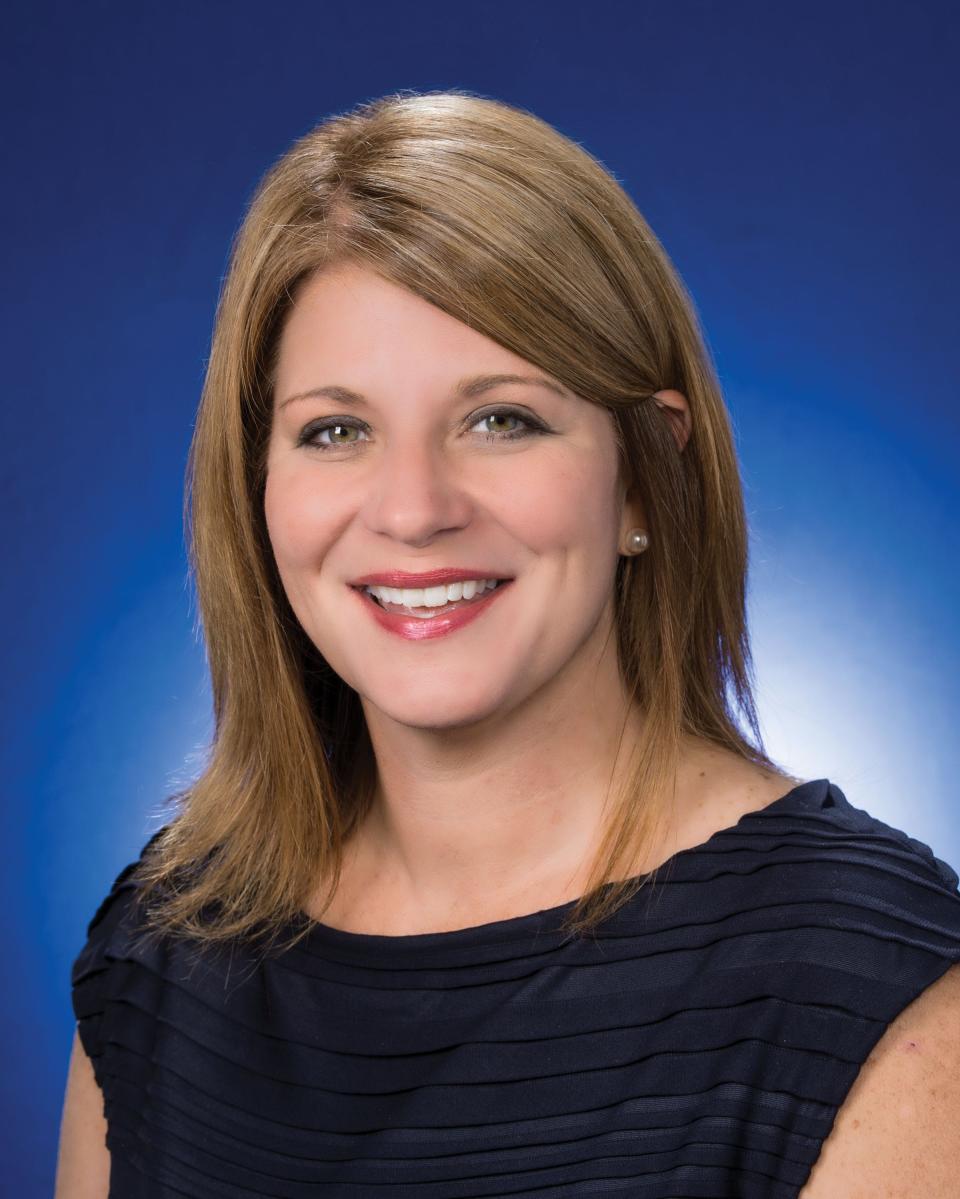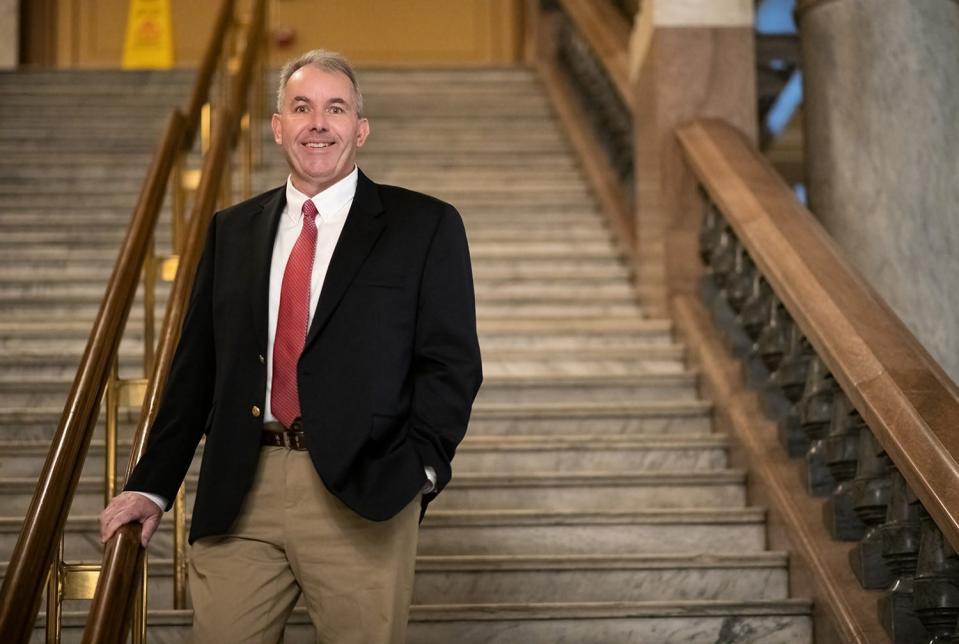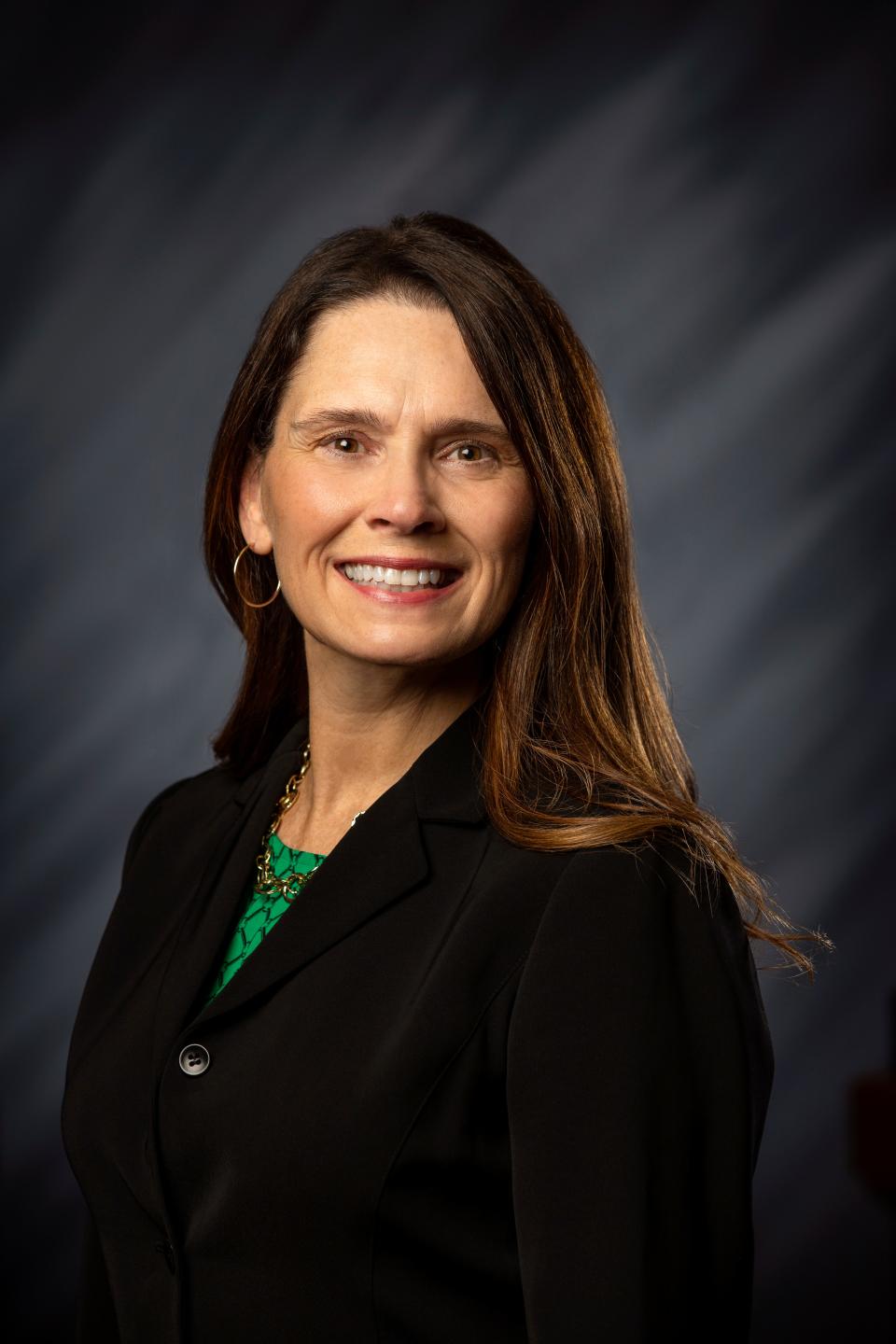2022 local races for General Assembly feature both new and familiar names
MUNCIE, Ind. − The Indiana General Assembly seats up for grabs this year include four races that include all or parts of Delaware County including a new Indiana State Senate District 26 that takes in all of Delaware and Randolph counties
District 26 had included part of Madison County. Now District 26 includes all of Delaware and Randolph counties. Following redistricting after the 2020 census, the district no longer had an incumbent living within it's new boundaries.
Senate District 26: Scott Alexander v. Melanie Wright
Both Melanie Wright and Scott Alexander are familiar names to Delaware County voters. Alexander is the Republican president of the Delaware County Council and Wright has previously served in the Statehouse as a local state representative for District 35 from 2014 to 2020.
Wright, a Democrat, is a teacher with Daleville Community Schools, said her top priority is education and greater local control of schools with less state interference.
"People don't feel like they have a voice any more," Wright said.

Polices are too often set in Indianapolis by legislators who don't engage with constituents. When she served in the House, Wright said she made sure people had her cell phone number so they could call and talk with her on issues that the caller might disagree with her but they had a chance to talk.
She says it's time to return control of Muncie Community Schools to voters after the state sanctioned take over of the schools by Ball State University. The school board is appointed by the Ball State University Board of Trustees and BSU President Geoffrey S. Mearns.
House race:Spending on Rowray/Wright Indiana House race exceeds $650,000
The Muncie school district was placed in the control of Ball State by the Indiana Legislature in 2018 after the state briefly took control of the district amid financial, enrollment and academic problems. The Ball State trustees appoint five MCS Board members based on recommendations from the university president. Mearns appoints the other two, chosen from candidates recommended by the Muncie mayor and the Muncie City Council.
Wright said it was time to let voters make those choices again.
She also said that because of choices made by the General Assembly, young teachers will never be able to earn as much money as she has because it did away with step salary increases for teachers at small schools. She said Indiana schools have become too tied to testing and much money could be saved simply by cutting the amount of testing in half without toughing the state's $6 billion surplus.
Regarding abortion, Wright said she is not in favor of abortion with no limits but more thought should be given to the circumstances women face once they are beyond the 10-week limit currently in the law passed by the General Assembly earlier this year.
She said the General Assembly should look at the issue again and seek solutions that are not arbitrary for women who are pregnant and need help.
"It's the gray areas," she said.
Regarding taxation, Wright said that instead of an attitude that says we've "got to keep the surplus healthy," the General Assembly should recognize the working families who are in need.
When in the House, Wright said she voted against the increase in state gasoline taxes.
"If we can alleviate pain caused by a tax, we should because people are in trouble out there," she said.
Alexander declined to be interviewed for this story. Instead, he provided written answers to three questions posed by The Star Press. He works as a real estate appraiser in Muncie.

The Star Press: What is your top priority in the Indiana House for the session starting in January?
Alexander: My priority for the session is to do everything we can to battle inflation and help Hoosier families. We are seeing the worst inflation in a long time and helping employers and families through this will help fix the economy.
The Star Press: Do you think the abortion law passed this year needs further action in 2023 and, if so, what would that action be?
Alexander: The abortion issue has been debated for over 50 years and will continue to be discussed for the foreseeable future. Currently, the new abortion law is being challenged. Until we know what the court rules, changes are an unknown.
Transparency: Commissioners not paying to stream county budget hearings that started Wednesday
The Star Press: Does the General Assembly need to look at lowering taxes and fees or otherwise alter current taxation in 2023 and 2024?
Alexander: Taxes and fees need to be constantly monitored. If we can lower taxes and fees in areas that help Hoosier families and provide relief in this time of increased cost, then those should be considered.
House District 33: John E. Bartlett v. J.D. Prescott
District 33 for the Indiana House of Representatives includes all of Randolph and Blackford counties, eastern Delaware County, the southern two-thirds of Jay County and the northeastern corner of Henry County.
J.D. Prescott has represented the district since 2018, and in his previous term he served on the House Environmental Affairs Committee and the Ways and Means Committee. He resides in Union City and is a Realtor with RE/MAX, working in Randolph, Jay and Delaware counties.
Prescott said that the upcoming General Assembly session will be a budget session, and his priority will be to help but together a budget that is helpful for the Indiana economy during a time of "massive inflation."
Part of that will be providing assistance to local governments, he said, in innovative ways, such as moving the salaries of probation officers from the county budget to the state and freeing the counties of that obligation, allowing them to use that money in other ways.
Special sessionMuncie's legislators face complicated issues in special session on abortion
Regarding the abortion law passed this year, now being challenged in court, Prescott said that any legislation might need to be tweaking after passage and have a "clean up" of it language. But he is a stalwart regarding the sanctity of life from conception through old age.
"That is always where I stand," he said.
He does support exceptions in the law to protect the life of the mother in the case of health complications during pregnancy.
Regarding taxes and state revenue, Prescott said he is concerned the state has been over-collecting taxes, causing it to have to issue checks to taxpayers giving them some money back.
The state has a plan to lower the state income tax from just over 3% of income to 2.9% and removing the floor on depreciation of assets for personal property tax purposes over the next seven years.
Prescott would go head and lower the income tax and allow the value of some assets to drop to zero along with the personal property tax right away without waiting.
Prescott's opponent is John E. Bartlett, an IT specialist for a manufacturer of security products in Indianapolis and lifetime resident of East Central Indiana, born in Randolph County. A graduate of Indiana University where is studied history and political science, he has been in it for 22 years.
"I want to get attention back on our small town and communities," he said.
Barlett said the state should look at ways to restore lost population by promoting rural communities to people who work from home.
Development:ECI Partnership won only a minor READI grant. Now local officials want to determine why
Regarding abortion, he said that the state should avoid getting between a woman and her physician when it comes to the health of the mother, which he said the bill passed in the General Assembly does.
While saying he is appalled by the choices some people might make regarding the aborting of a child, the law that was passed is not a good one for women.
Bartlett supports using more of the state surplus to come to the aid of struggling small communities, saying the estimated $5 billion to $6 billion surplus is too large not to use when the need is as great as it is.
If the state were to just take $1 billion, it could buy 2,000 fire trucks. That would mean about 22 new fire trucks for each county in the state.
"That's just to give you an idea of how much money that is," Bartlett said.
The money could be used to better fix roads, increase pay for teachers and possible provide a tax cut.
State Representative District 34: Dale Basham v. Sue Errington
Sue Errington is a Statehouse veteran, serving in the Indiana State Senate from 2006 to 2010 before returning to Indianapolis to represent Muncie in the House of Representative in 2012. District 34 takes up Muncie proper, from the airport on the north side to the bypass on the east and south and to Morrison Road on the west.
A Democrat, Errington acknowledges never having served in the majority in either of the legislative bodies. Her opponent, Republican Dale Basham, is also well known in the city. An educator at Southside High School, he also served as an administrator at Muncie Central and was most recently an interim director of the Muncie Visitors Bureau.
Tenant issues:Complaints hit council as tenant resolution sent to General Assembly
The 2023 session of the General Assembly will be a year in which the legislators adopt a budget, and Errington said her top priority will be "having a budget that provides what the people of Indiana need."
That means more investment in education for programs like On My Way Pre-K, which award grants to 4-year-olds from low-income families to provide access to high-quality preschools. As well as enhancing higher education across the state.
Regarding abortion, Errington opposed the changes made this summer that followed the overturn of the Roe decision.
"I would repeal it and go back to what we had," she said.
Errington served 17 years as the public policy director for Planned Parenthood of Indiana prior to serving at the Statehouse.
Regarding the state surplus, Errington said she would like to see the money spent on needs for the people in the state rather than maintaining it at such high levels. She said $6 billion should be reduced to $1 billion to $2 billion.
Other priorities for Errington include practical and age-appropriate sex education in public schools, with the aim of stopping the spread of disease and HIV.
Errington has also taken up the cause of legalizing cannabis in Indiana for both recreation and medical use, but especially for medical use.
She said Hoosiers are already going to Michigan and Illinois where the purchase of marijuana is legal. She said there is no reason why Hoosiers shouldn't have the opportunity to buy the substance here.
"More and more rank-and-file Republicans are understanding," Errington said about the trend to legalize cannabis. "But the Republican leadership is standing in the way."
Primary:Alexander, Prescott and Basham win GOP statehouse races to face Democrats in fall
Basham is again running for the District 34 seat. Like Errington, his top priority is investing in education as a means to improving the lives of people in the district.
"My belief is that education is the best path to success," Basham said.
Basham is a former director of the Muncie Area Career Center. He said adult education and vocational education will be key to building more successful lives in the community.
"Not everybody needs a four-year degree, but everybody does need a plumber...," he said.
Basham noted he was also chairman of the Business Education Partnership for the Muncie-Delaware County Chamber of Commerce, which helps adapt local school curriculum to the needs of employers.
"It's about solving the needs of a workforce that is under trained," Basham said.

Regarding abortion, Basham said he is pro-life but understands that the law that was put together by the General Assembly this year was developed in a rush.
He said, however, that he wants to protect life from its early beginnings through to its natural end.
Basham said the state should move to cut income taxes immediately, taking the rate from 3.23% to 2.9% next year, instead of waiting seven years as Republicans had originally planned.
State Representative District 35: Elizabeth Rowray v. Brad Sowinski
House District 35 stretches from west of Muncie, including Yorktown and Daleville, and occupies area of Madison County north of Anderson, including the communities of Alexandria, Elwood and Frankton.
Incumbent Republican Elizabeth Rowray is running for re-election after taking the job of President/CEO of the Muncie-Delaware County Chamber of Commerce and the Muncie-Delaware County Economic Development Alliance.
Her opponent is Alexandria librarian Brad Sowinski, a Democrat making his first run for public office. He said he decided to run in response to legislation that surfaced in the General Assembly in the past session that he claims infringed on the First Amendment.
Sowinski, youth services librarian at Alexandria Public Library, testified in opposition to Senate Bill 167 and House Bill 1040 before the Indiana House Education Committee, according to the Herald Bulletin of Anderson.
Chamber work:Chamber chief Elizabeth Rowray also serves in Indiana House of Representatives
Sowinski said the legislation endangered freedom of speech. The bills were aimed at limiting teaching socially divisive concepts, such as Critical Race Theory and sexuality issues. Neither of those bills made it out of committee.
He said the legislation could have hampered the ability of his library to circulate materials freely.
"It felt like an attack on free speech," Sowinski said.
He said his research showed Rowray had voted in support of the proposals. Rowray said that she did not and could not have, since the legislation did not reach the floor of the House and was never before a committee on which she serves.
But she did say, "I will always vote to make it illegal to pass pornography to children."
Sowinski said he understands making material age-appropriate, but he is also a proponent of all sides being heard and available to the public.
Regarding abortion, Sowinski said that the issue of abortion needed more time for consideration than was available this year during the special session and that he supports returning abortion laws to where they were before the U.S. Supreme Count overturned the Roe decision in June. He supports a woman's right to abortion up to 22 weeks. The law passed in special session bans abortion in most cases after 10 weeks.
School contrversy: Muncie Central students stage protest after conflict over class project
"We want to reset it," he said.
Rowray said abortion as a political issue is not yet settled.
"This issue is not going away, ever," said the former director of a local crisis pregnancy center.
Some in Congress are seeking a national ban on abortion. Others are seeking legislation that would restore the freedom to attain abortion as it was under Roe. She said that people on both sides are going to have to argue out the issue within the system.

Rowray said the first priority for the next session of the general Assembly was the economy and trying to help Hoosiers adapt to succeed.
The Statehouse can help in two areas, she said. One is develop the workforce to get people ready for the jobs that are there and can pay a living wage. The other is providing affordable housing, which has been lacking.
Rowray said it was great that the Muncie community was able to recruit manufacturers like CANPACK, but we've got to be able to deliver an able workforce for the new factories and the people recruited have to be able find a good home in which to live.
Regarding taxes and the state surplus, Sowinski says the state should spend more on Child Protective Services to better deal with child abuse issues in the state. He said the agency is over burdened and needs more case workers.
"I do feel like we are being over charged a little bit," he said of the taxation that leads to the multi-billion-dollar surpluses.
Rowray the state need to hit the right revenue threshold so as not to have keep returning tax collections.
"It costs money to keep sending money back," she said.
This article originally appeared on Muncie Star Press: Delaware County Statehouse races feature social and financial issues

